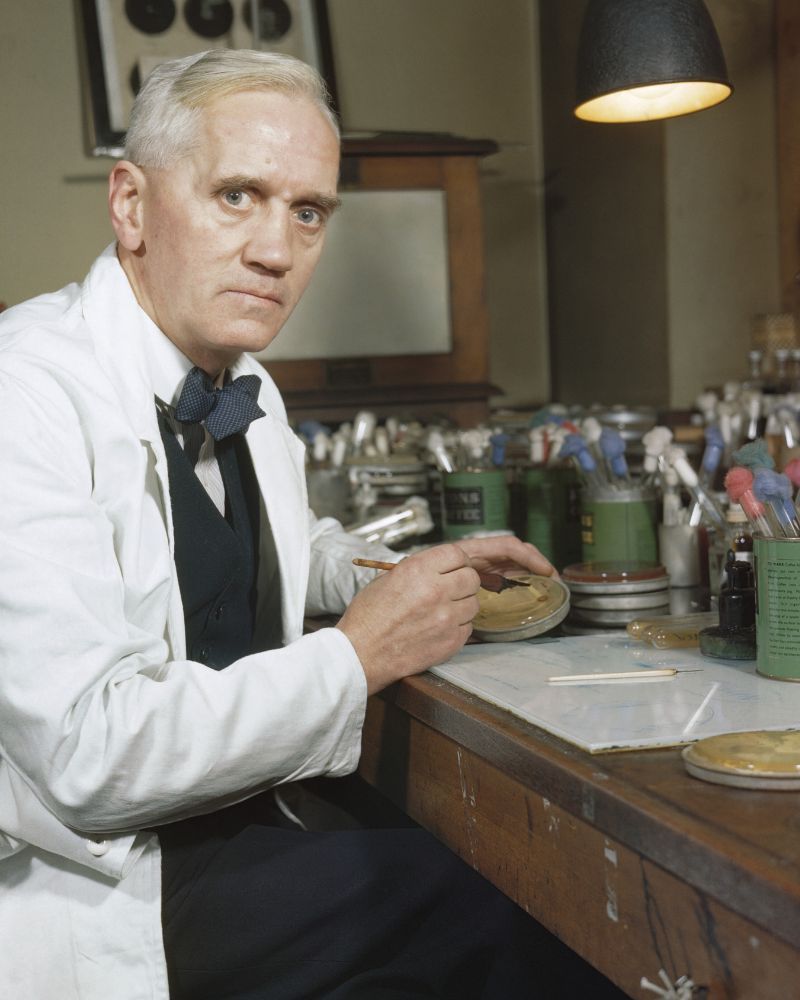Alexander Fleming: The Accidental Discovery That Changed Medicine Forever

In 1928, Scottish scientist Alexander Fleming made one of the most important medical discoveries in history—the antibiotic penicillin. This breakthrough transformed medicine, saving millions of lives and laying the foundation for modern antibiotics. His discovery not only changed the way bacterial infections were treated but also revolutionized public health, making surgeries and medical treatments safer.
The Accidental Discovery
Fleming was a bacteriologist researching Staphylococcus bacteria, which cause infections in humans. While returning from a vacation, he noticed something unusual on one of his petri dishes. A mold, later identified as Penicillium notatum, had contaminated the culture. Around this mold, the bacteria had been completely destroyed, while the rest of the dish remained unaffected.
Intrigued by this phenomenon, Fleming conducted further experiments and found that the mold released a substance that killed bacteria. He named this substance penicillin and realized its potential as an antibacterial agent.
Challenges and Development of Penicillin
Although Fleming had discovered penicillin’s antibacterial properties, he struggled to extract and produce it in large quantities. His findings, published in 1929, initially went unnoticed by the medical community. It wasn’t until the early 1940s that scientists Howard Florey, Ernst Boris Chain, and Norman Heatley at the University of Oxford developed a method to mass-produce penicillin.
During World War II, penicillin was used to treat infected wounds in soldiers, proving to be a miracle drug. By 1945, it was widely available and had already saved thousands of lives. In recognition of their work, Fleming, Florey, and Chain were awarded the Nobel Prize in Medicine in 1945.
The Impact of Penicillin
1. Revolutionized Medicine
Before antibiotics, bacterial infections like pneumonia, tuberculosis, and sepsis were often fatal. Penicillin provided an effective treatment, drastically reducing mortality rates.
2. Led to the Development of Other Antibiotics
Fleming’s discovery paved the way for the development of many other antibiotics, including amoxicillin and cephalosporins, which continue to combat bacterial infections today.
3. Made Surgeries and Medical Procedures Safer
Before antibiotics, even minor surgeries carried a high risk of infection. With penicillin, doctors could perform complex procedures with reduced fear of post-surgical infections.
4. Extended Human Lifespan
The availability of antibiotics contributed to a significant increase in life expectancy worldwide. Diseases that once killed millions became treatable, leading to better public health.
Fleming’s Warning: Antibiotic Resistance
Despite the success of penicillin, Fleming was aware of a potential danger—antibiotic resistance. He warned that overuse or misuse of antibiotics could lead to bacteria evolving resistance, making infections harder to treat. Today, antibiotic resistance is a growing global concern, reinforcing the importance of using antibiotics responsibly.
A Lasting Legacy
Alexander Fleming’s discovery of penicillin was a turning point in medical history. His keen observation and curiosity led to a breakthrough that continues to save lives every day. From treating infections to enabling life-saving surgeries, penicillin remains one of the greatest medical advancements of all time.
Fleming’s legacy serves as a reminder of how one accidental discovery can change the world forever.